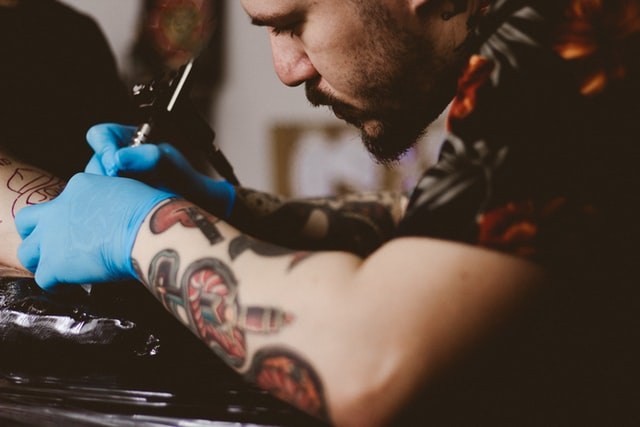Demand for tattoos has never been higher, but the sector is struggling with a shortage of materials needed to ink customers.
Tattooing is exploding in Belgium,” L’avenir reports.
While there was estimated to be around 500,000 tattoos done in 2017, “we are more than double that today,” tattooist Bruno Menei said.
“Tattooing is a rite of passage which affects all social categories. Ten years ago, it was for artists and intellectuals. Six years ago, I started tattooing CEOs. Today, I tattoo the parents of my daughter's school friends.”
But an EU-wide ban on tattoo ink ingredients has left many tattoo artists in Belgium struggling as they work to recover from two years of coronavirus-related restrictions that also impacted the sector.
Pandemic hurt tattoo parlours but also increased demand
“The tattooist is a therapist, and the crisis has brought its share of suffering that people want to express through tattoos,” said Suzanne Quartel, a tattoo artist in Liège.
Quartel agreed that demand has sharply risen: “I've seen a lot of symbols of renewal in tattoos lately.”
The pandemic followed by the ingredient ban isn’t the only thing hurting the sector, either.
There is also less work being done in legal shops as people turn to illegal tattooists who work from home, “buy their materials on Wish” and “don’t declare anything” when it comes to paying taxes, Bruno said.
“Confinement and precariousness have pushed people to tattoo in order to make money, while others have had to stop,” agreed Colin Similon, a tattooist from Namur.
Related News
- Tattooing in the EU: How safe is it?
- 'Final straw': Tattoo artists up in arms over lack of governmental support regarding ink ban
- Ban on many tattoo inks will leave artists high and dry
Quartel said that the lockdowns contributed to a rise in illegal tattooing, pointing out that she had to close for seven months during the health crisis.
“Clients lost their patience and turned to these cheaper pseudo tattooists. For a full arm, I have to ask for €2,000, whereas the illegal tattooist will do it for €500,” she said.
“People think we're rolling in money, but out of every €1,000 declared, I have €150 left after taxes.”
She says the situation will force many legal parlours to close their doors: “Since January, there have been five bankruptcies. [These] will multiply. The legal practices are in danger.”

